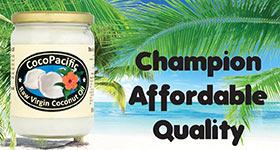|
|
100% Health Survey |
John Scott reviews the recent 100% Health Survey which suggests that high consumption of nuts and seeds, often avoided because of their high fat and calorie content, is an excellent predictor of good health while wheat and milk, considered by many to be staples, are associated with poor health.
Finally, however, someone has carried out a survey to establish exactly which foods are associated with optimal health! Patrick Holford, a leading UK nutritionist, has surveyed over 55,000 Britons to compare subjective ratings of health with consumption of specific food groups in order to derive a research-based guideline for healthy eating. Whereas most research into diet and health compares diet intakes with the prevalence of diagnosed diseases, the online '100% Health Survey' – the largest ever comprehensive health and diet survey carried out in Britain – has uniquely compared the diets of those in robust health with those who have a plethora of health issues that may reasonably be expected to progress to disease, unless the underlying causes are addressed. The results show how the ‘sub-optimal’ health that is the lot of so many today is closely related to diet, the best foods for health proving to be (in descending order of importance) nuts and seeds, fresh fruit, oily fish (if eating at least 2 servings per week), vegetables/salad and water. And the worst foods (from very bad to slightly less bad), sugar, sugary snacks and refined foods, salt, meat, caffeinated drinks, wheat and dairy products. Consumption of sugary snacks and drinks was by far the best predictor of poor health for every measure of health looked at (energy, digestion, immunity, hormonal and mental health), confirming that sugar is the worst of the 'bad' foods – much worse than alcohol or salt. In fact, indulging in sweets and sugary snacks more than double one's chances of being in poor health, while avoiding them will make one six times more likely to enjoy optimal health. These findings cut across much conventional dietary wisdom. For example, nuts and seeds, which are often avoided because of their fat and calorie content, come up as excellent predictors of good health, and both wheat and milk, which are considered by many to be staples and are in almost every form of convenience food, are shown to be associated with poor health. Another surprise was the impact of alcohol. Results showed that those drinking a unit of alcohol a day, eg a small glass of wine, were less likely to be in poor health than abstainers, although this relationship does not hold up for larger amounts of alcohol. Collating all the data from the survey, the following general dietary recommendations emerged. * Eliminate sugar-based snacks (chocolate bars, biscuits, etc.) or limit these products to very occasional use. * Avoid adding salt to food. * Reduce wheat consumption to a maximum of 1 serving per day (bread, pasta, pizza etc.). * Avoid adding sugar to food or drinks. * Reduce dairy product consumption to a maximum of 1 serving per day. * Eliminate tea, coffee and cola consumption or limit these to very occasional use. * Reduce consumption of refined foods (white bread, flour and rice etc.) to a maximum of 1 serving per day. * Minimise the consumption of restaurant and processed meals. * Reduce the consumption of red meat to a maximum of 2 servings per week, particularly those already in poor digestive health. * Increase consumption of fresh, raw seeds and nuts to 3 servings per day. * Increase consumption of fresh fruit and vegetables to a combined total of 8-10 servings a day. * Increase consumption of oily fish to 3 servings per week. * Increase consumption of water to 8 glasses per day (approximately 1.5 litres).
Click here for more articles Click here for LINKS to manufacturers of nutrition and food supplements. First Published in 2010 |








